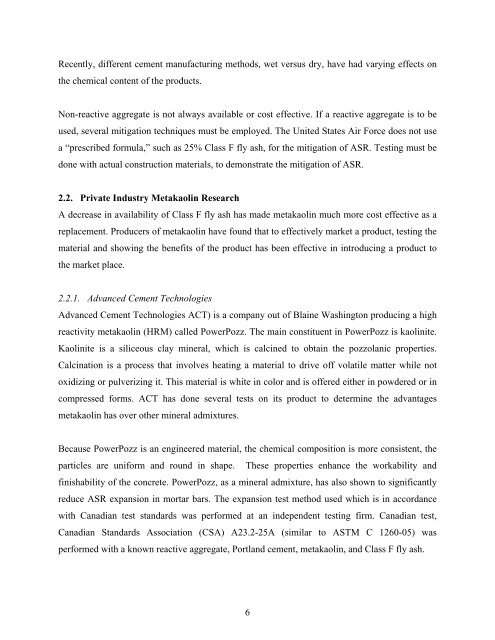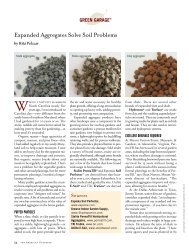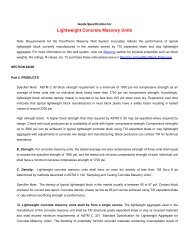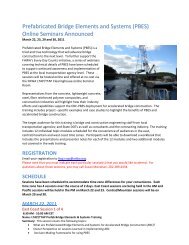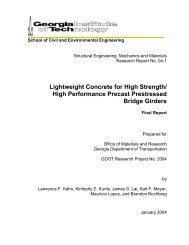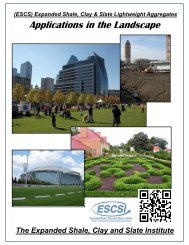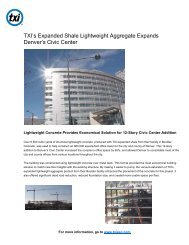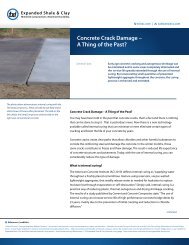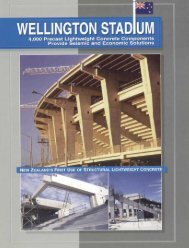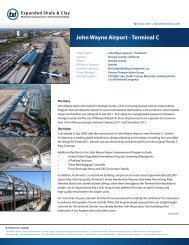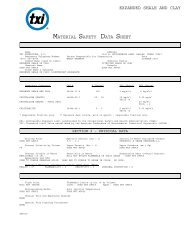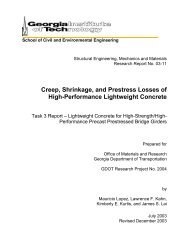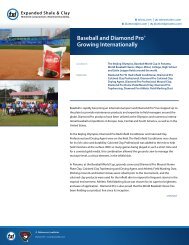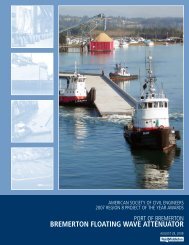Special-Uses-Alkali - Expanded Shale & Clay
Special-Uses-Alkali - Expanded Shale & Clay
Special-Uses-Alkali - Expanded Shale & Clay
You also want an ePaper? Increase the reach of your titles
YUMPU automatically turns print PDFs into web optimized ePapers that Google loves.
Recently, different cement manufacturing methods, wet versus dry, have had varying effects onthe chemical content of the products.Non-reactive aggregate is not always available or cost effective. If a reactive aggregate is to beused, several mitigation techniques must be employed. The United States Air Force does not usea “prescribed formula,” such as 25% Class F fly ash, for the mitigation of ASR. Testing must bedone with actual construction materials, to demonstrate the mitigation of ASR.2.2. Private Industry Metakaolin ResearchA decrease in availability of Class F fly ash has made metakaolin much more cost effective as areplacement. Producers of metakaolin have found that to effectively market a product, testing thematerial and showing the benefits of the product has been effective in introducing a product tothe market place.2.2.1. Advanced Cement TechnologiesAdvanced Cement Technologies ACT) is a company out of Blaine Washington producing a highreactivity metakaolin (HRM) called PowerPozz. The main constituent in PowerPozz is kaolinite.Kaolinite is a siliceous clay mineral, which is calcined to obtain the pozzolanic properties.Calcination is a process that involves heating a material to drive off volatile matter while notoxidizing or pulverizing it. This material is white in color and is offered either in powdered or incompressed forms. ACT has done several tests on its product to determine the advantagesmetakaolin has over other mineral admixtures.Because PowerPozz is an engineered material, the chemical composition is more consistent, theparticles are uniform and round in shape. These properties enhance the workability andfinishability of the concrete. PowerPozz, as a mineral admixture, has also shown to significantlyreduce ASR expansion in mortar bars. The expansion test method used which is in accordancewith Canadian test standards was performed at an independent testing firm. Canadian test,Canadian Standards Association (CSA) A23.2-25A (similar to ASTM C 1260-05) wasperformed with a known reactive aggregate, Portland cement, metakaolin, and Class F fly ash.6


